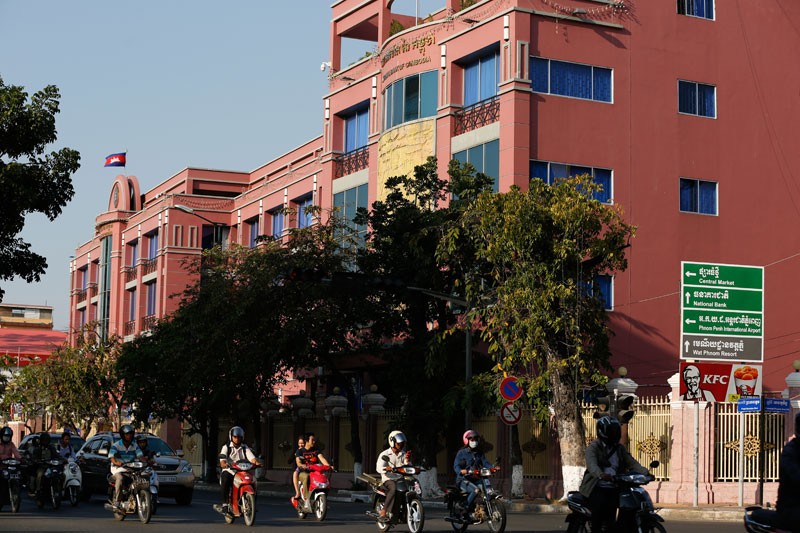The central bank has tentatively agreed to help microfinance institutions—which will be saddled with a hard cap on interest rates as part of a populist government campaign—by offering them cheap loans, lowering license fees or delaying the imposition of a reserve requirement, finance company representatives said on Thursday.
During a meeting between representatives of microfinance institutions (MFIs) and the National Bank of Cambodia (NBC) earlier this week, members of the central bank’s technical team agreed to the three initiatives pending final approval from its board, said Sok Voeun, CEO of LOLC, an MFI.

The government last week announced an 18 percent cap on the interest rate MFIs can charge borrowers, a policy attempting to rein in the indebtedness under which increasing numbers of people across the country are struggling. A government spokesman explained that it was about putting people’s livelihoods ahead of MFIs’ profit margins, but others have said it failed to address the root causes of indebtedness and could cause the industry to collapse.
Mr. Voeun said on Thursday that the central bank had suggested annual license fees—projected to cost about $280,000 this year for LOLC—could be lowered, or the central bank could give loans at 3 to 4 percent interest to MFIs as long as they leave a deposit in U.S. dollars or provide a guarantor.
The central bank also offered to delay a reserve requirement for borrowing, which had been planned this year in addition to already existing reserve requirements based on capital and deposits, he said.
Huot Ieng Tong, the Cambodia Microfinance Association’s (CMA) chairman and the president and CEO of microfinance lender Hattha Kaksekar, said it was relatively common for organizations—including the Asian Development Bank and World Bank—to act as guarantors.
He added that MFIs were confident they could withstand the changes brought about by the government’s policy.
“I used to feel a little bit worried, but after gathering all the CEOs in the industry who are members of CMA, we have not seen them show any of their concerns,” he said. “Most of them support the stand that they still can operate with the new interest rate cap.”




